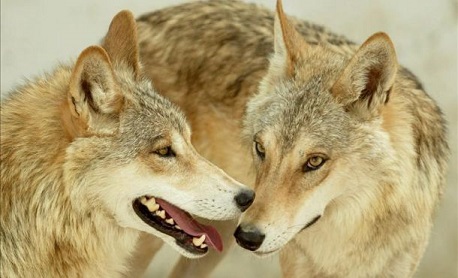02
Sep
Editorial: Wolves Need a Fair Review – Agency Drops Scientists from Peer Review Panel

The U.S. Fish & Wildlife Service recently delayed its independent analysis of a plan to drop endangered species protections for wolves. That’s a start, but the agency should go further by ensuring that its plans receive a rigorous peer review that focuses on the science and not the politics of delisting.
Better yet, the agency should abandon its premature plan to remove legal protections for gray wolves in the lower 48 states — including Oregon, where the apex predator’s numbers have yet to reach sustainable levels.
In June, the agency proposed the elimination of most remaining federal Endangered Species Act restrictions, saying the wolf has sufficiently recovered after being hunted nearly to extinction by the mid-20th century.
The decision was driven more by hunting, ranching and political interests than science. The agency’s delisting plan conflicts with warnings from many wildlife biologists that the species’ numbers have not reached sustainable levels and the wolf has only begun to re-establish itself.
Sixteen scientists responsible for most of the research that the federal agency cited in its delisting decision sent a letter to Interior Secretary Sally Jewell criticizing the delisting plan and protesting that their findings were mischaracterized.
The private consulting firm that was hired to conduct a peer review then removed three scientists from that review panel who had signed the letter to Jewell.
The agency insists that it postponed the peer review because the identities of the panelists, which were supposed to be hidden from agency officials, had been discovered. A more likely explanation is that they were removed because they had signed the letter protesting the delisting plan.
A Fish & Wildlife Service spokesman declined comment about the agency’s dealing with the scientists but said the agency “wanted to be particularly sure that the people we got for this process were objective and unbiased” because the wolf is such a “highly polarizing subject.”
Perhaps. But it seems doubtful that the agency would have removed the scientists from the panel if they had signed a letter praising the delisting.
The Fish & Wildlife Service should restore the scientists to the review panel. Or Jewell should pull the plug on a delisting plan that scientists and conservation groups warn will limit the further expansion of the wolves’ current range, which is less than 10 percent of its historic reach.
Gray wolves were once abundant in the West before white settlers arrive and hunted them nearly to extinction — they were wiped out entirely in Oregon. A small number were reintroduced in Yellowstone National Park and in Idaho in the mid-1990s and the animals thrived under federal protection. At least 1,600 wolves now populate the northern Rockies, although last year the population fell by a disturbing 7 percent, primarily because of 2011 delistings in Wyoming, Montana and Idaho and the recreational hunting that resulted.
Gray wolves need a fair hearing from the Fish & Wildlife Service — and they need a stronger, long-term federal management plan that provides for a sustainable number of wolves across their entire range so that they can survive and thrive for years to come.
This Editorial appeared in The Register-Guard on August 27, 2013.
#########
Although the peer review is on hold, comments are still being taken on the proposed rule that would remove federal protections for gray wolves.
PLEASE ACT FOR WOLVES TODAY.
Talking points and information about how to comment on the federal wolf delisting proposal are here.
Talking points and information about how to comment on the federal wolf delisting proposal are here.
___________________________________________________________________________________________________________________________________________________________________________
Click here to join our email list for Mexican gray wolf updates and action alerts.
Visit us on Facebook here.



